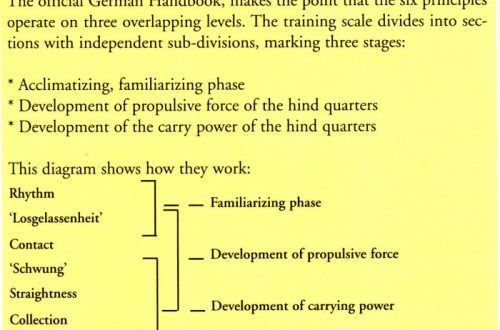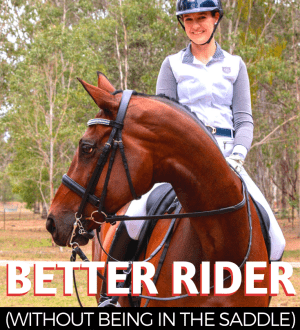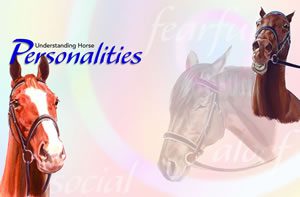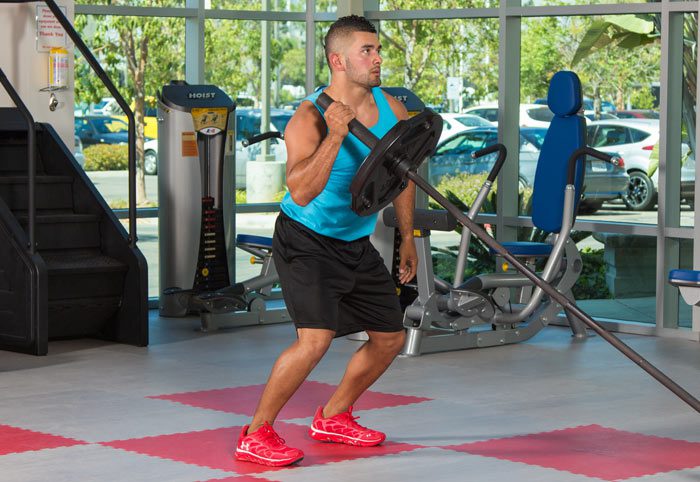
You find yourself on a “plateau” – how to come to terms with the lack of progress?
You find yourself on a “plateau” – how to come to terms with the lack of progress?
In any discipline of equestrian sport, reaching a plateau – a period when development seems to stop completely – is an integral part of the learning process. Horse and rider cannot constantly grow, improve their jumping skills with every training session. A plateau can feel like a rut. It can bring frustration and boredom. The work can become routine and monotonous – your hundred thousandth drive on a 20-meter circle once again will not bring any improvements.
Many riders who perceive the plateau as stagnant give up, but I am convinced that this is the moment when “the scythe finds the stone.”
A lot of riders dream of winning gold medals, rather than hitting every corner. But during the journey from beginner to pro, working on a plateau becomes what ultimately gives us the opportunity to step from level to level.
Plateau work is honest daily work, where we make a consistent effort to ride properly, stay soft, relaxed, use only the muscles needed to do the job.
You need to love your plateau. Not for dogma or to prevent negative thinking, but to focus on performance goals and renew the pursuit of meaningful riding.
Plateau is quite beautiful in its versatility. From the lowest levels down to the Grand Prix, the fundamentals of dressage remain the same. Advanced movements are made up of simple elements stacked like cubes, one on top of the other. If simple elements add up incorrectly, then we will not get the overall result.
How do we improve our piaffe? Certainly not thanks to the drill! You improve contact, flexibility and relaxation. You encourage the horse to engage his back. You teach her to engage muscle groups and use them effectively.
Training during which you objectively focus and use the controls properly, sometimes that’s all it takes to enjoy a successful ride. The rider must learn to work on the edge of low expectations while maintaining high standards.
If you think too much about what you want to achieve, you don’t think enough about what you are currently doing. However, every time you train a horse, there is a duality: conflict and harmony. Everyone is so drawn to harmony that they drive themselves into conflict. A horse that is under constant stress from the fact that the rider demands too much from him, at one fine moment, simply stops developing.
When riding dressage, you should always leave yourself room to put in more effort to improve your calm and relaxed position in the saddle. There is always room for development here. It goes a long way towards creating a better future for you and your horse, especially during the plateau phases. When dressage becomes a meditation on the move, and not just the satisfaction of one’s own ambitions, the horse will be happy at work and the rider will be satisfied. We should all think about humility in its high, philosophical sense.
We ride for ourselves, not for the horse, which is why he needs to go into the arena and do what we ask – whatever it is.
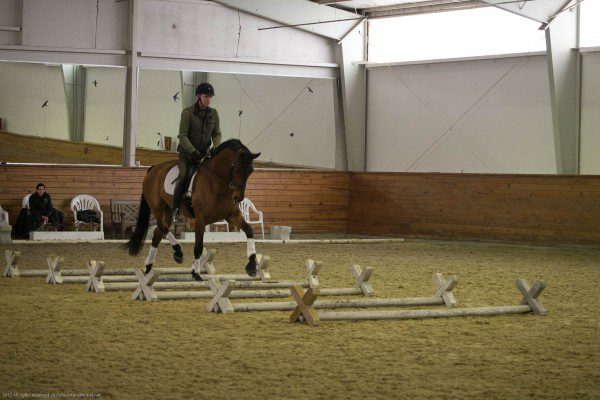
Every time I hit a plateau, I set myself a challenge. Can I improve basic skills? Can I get a little softer? Can I improve my controls? Can I keep my horse happy during training?
Every time we are close to our horse, there is a chance to improve something in our relationship. Little baby steps, basic skills that move us forward.
One day, when it seems that nothing new will happen anymore, some kind of switch is triggered. In an instant, everything takes on new meaning. After months of practice and finding new ways to do the downward transition, you suddenly do it with perfect balance. Or maybe the distance to the oxer, previously not given, now reads like an open book.
You feel harmony: the legs are dancing, and the hands are calm. This is euphoria.
Congratulations!
Let yourself feel the taste of victory and thank your horse heartily. And let you be comfortable at any stage, at whatever stage you are, the next plateau is inevitable. The best learning never ends!
David Collins (source); translation by Valeria Smirnova.



